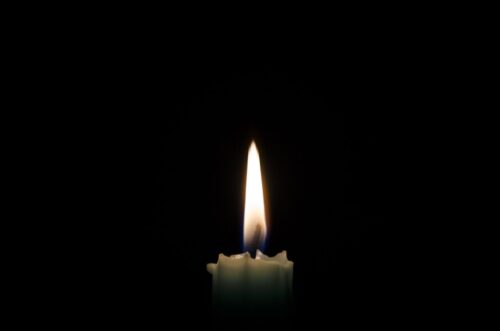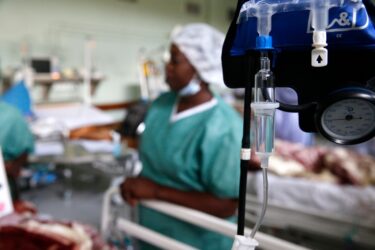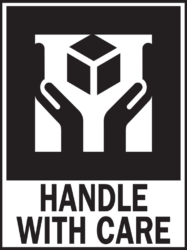Zum Jahrestag des Hamas-Überfalls auf Israel am 7.10.2023 haben der ehemalige Patriarch Michel Sabbah von Jerusalem und christliche Berater:innen ein Statement veröffentlicht, welches das umfassende Leid aller Menschen vor Ort vor und vor allem auch nach diesem Datum benennt und auf das Miteinander und auf Friedensinitiativen setzt. Über Vermittlung von P. David Neuhaus SJ veröffentlicht feinschwarz.net diesen Text im Original.
After a year of constant war, as the cycle of death continues unabated, we feel the need as Christians and as citizens to seek out the hope that comes from our faith. First, we must admit that we are exhausted, paralyzed by grief and fear. We are staring into the darkness. The entire region is in the grip of bloodshed that continues to escalate and spares no one. Before our eyes, our beloved Holy Land and the entire region are being reduced to ruins.
Daily, we mourn the tens of thousands of men, women and children who have been killed or wounded especially in Gaza, but also in the West Bank, Israel, Lebanon and beyond in Syria, Yemen, Iraq and Iran. We are outraged at the devastation wreaked on the area. In Gaza, homes, schools, hospitals, entire neighborhoods are now heaps of rubble. Disease, starvation and hopelessness reign. Is this the model for what our region will become?
Around us, the economy is in ruins, access to work is blocked and families have difficulty putting food on the table. In Israel too many are in mourning, living in anxiety and fear. There must be another way!
The cycles of violence have been unending.
Our catastrophe did not begin on October 7, 2023. The cycles of violence have been unending, beginning in 1917, peaking in 1948 and in 1967, continuing ever since, until today. And today has the Zionist dream of a safe home for Jews in a Jewish state called Israel brought security for Jews? And the Palestinians? They are caught up in the reality of death, exile and abandon for too long, waiting while persistently demanding the right to remain in their land, in their towns and villages.
Shockingly, the international community looks on almost impassively. Calls for ceasefire and an end to the devastation are repeated with no meaningful attempt to reign in those wreaking havoc. Weapons of mass destruction and the means to commit crimes against humanity flow into the region.
As this all continues, the questions resound: When is this going to end? For how long can we survive like this? What is the future of our children? Should we emigrate?
As Christians, we are faced with other dilemmas too
As Christians, we are faced with other dilemmas too: Is this a war in which we are simply passive bystanders? Where do we stand in this conflict, presented too often as a struggle between Jews and Muslims, between Israel, on the one hand, and Hamas and Hezbollah supported by Iran, on the other? Is this a religious war? Should we isolate ourselves in the precarious safety of our Christian communities, cutting ourselves off from what is going on around us? Are we simply to watch and pray on the sidelines, hoping that this war will eventually pass?
The answer is a resounding no. This is not a religious war. And we must actively take sides, the side of justice and peace, freedom and equality. We must stand alongside all those, Muslims, Jews, and Christians, who seek to put an end to death and destruction.
Only together, can we find the resources to face the challenges.
We do so because of our faith in a living God and in our conviction that we must build a future together. Though our Christian community is small, Jesus reminds us that our presence is powerful. Confident in his resurrection, we have the vocation to be like yeast in the dough of society. With our prayers, our solidarity, our service and our living hope, we must encourage all of those around us, of all faiths and those with no faith, to find the strength to lift ourselves up from our collective exhaustion and find a path forward.
But none of us can do this alone. We look to our Christian religious leaders, our bishops and our priests for words of guidance. We need our shepherds to help us discern the strength that we have when we are together. Alone, each one of us is isolated and reduced to silence. Only together, can we find the resources to face the challenges.
In our exhaustion and despair, let us remember the paralytic man (Mark 2: 1-12) who could not get up. It was only when his friends carried him, when they used their imagination to create a hole in the roof and lower him down on his mat, that he was able to reach Jesus, who said to him: “Get up and walk.”
So it is with us. We must carry one another if we are to go forward. We must use our imaginations, rooted in Christ, to find openings where there appear to be none. When we have reached the limits of our hope, together we carry one another, as we turn to God and ask for help.
Our faith in the Resurrection teaches us that all human beings are to be loved, equal, created in the image of God.
We need this help not to despair, not to fall into the trap of hatred. Our faith in the Resurrection teaches us that all human beings are to be loved, equal, created in the image of God, children of God and brothers and sisters of one another. Our belief in the dignity of every human person is manifest in our service to the wider community. Our schools, hospitals, social services are places where we care for all in need, indiscriminately.
It is also our faith that motivates us to speak the truth and oppose injustice. We are believers in a peace that Jesus has given us and that cannot be taken away. “He is our peace” (Ephesians 2:14). We must not be afraid to speak out against any form of violence, killing and dehumanization. Our faith makes us spokespeople for a land without walls, without discrimination, spokespeople for a land of equality and freedom for all, for a future in which we live together.
We need a definitive peace agreement between these two partners and not temporary ceasefires or interim solutions.
We will only know peace when the tragedy of the Palestinian people is brought to an end. Only then will Israelis enjoy security. We need a definitive peace agreement between these two partners and not temporary ceasefires or interim solutions. Israel’s massive military force can destroy and bring death, it can wipe out political and military leaders and anyone who dares to stand up and oppose occupation and discrimination. However, it cannot bring the security that Israelis need. The international community must help us by recognizing that the root cause of this war is the negation of the right of the Palestinian people to live in its land, free and equal.
A peaceful future depends on a togetherness that extends beyond our own community. We are one people, Christians and Muslims. Together, we must seek the way beyond the cycles of violence. Together with them we must engage with those Jewish Israelis who are also tired of the rhetoric, the lies, the ideologies of death and destruction.
Let us set forth, carrying one another. Let us keep hope alive, knowing that peace is possible. It will be difficult but we remember that we once lived together in this land as Muslims, Jews and Christians. There will be many moments when the way appears blocked. But together we will carve out a path forward, rooted in God’s hope, and “hope does not disappoint us.” (Romans 5:5). Our hope is in God, in ourselves and in every human being upon whom God bestows some of His goodness.
His Beatitude Patriarch Michel Sabbah
and members of the Christian Reflection from Jerusalem
—
Michel Sabbah (*1933) war der lateinische Patriarch von Jerusalem von 1987-2008





